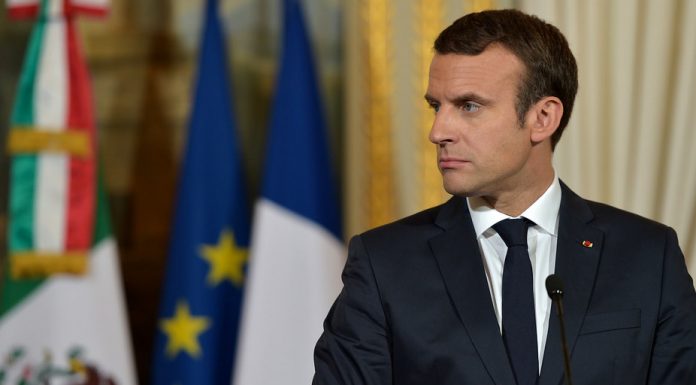(Elias Irizarry, Headline USA) A recent red wave in Europe may be one of the biggest bellwethers yet in predicting a win for presumptive GOP presidential nominee Donald Trump’s November re-election bid in the U.S.
Yet, some are waiting to see how globalist elites respond to the populist sweep and whether they are actually willing to cede their power, or if America’s 2020 election (not to mention Brazil’s similarly suspicious 2022 outcome) was, in fact, the bellwether for what lies in store across the pond.
Following the unexpected victory of France’s right-wing National Rally in last week’s European elections, President Emmanuel Macron dissolved the French parliament and called for a “snap election,” giving French parties only two weeks to campaign.
The election, scheduled to take place in two rounds—one on June 30 and the other on July 7—has been characterized as a “strategic move” by Macron to protect his coalition in Parliament at a time where polling indicates an increasing loss of support for his party among the French populace.
However, a stunning loss for Macron may be on the horizon. French newspaper Le Journal du Dimanche reported National Rally’s support among the French electorate as high as 35% on June 15—leading the leftist New Popular Front by 9 points. Macron’s coalition, Together, failed to garner even 20%—consistently holding at about 18% in polls according to the French newspaper.
Macron’s five-year term ends in 2027, when he will be ineligible to run again, but much remains at stake for his legacy in his final three years under a parliament sympathetic to his longtime political rival, Marine Le Pen.
Macron’s reported desperation to hold his coalition has been noted by foreign officials – with the President being called out by Italian Prime Minister Giorgia Meloni for “electioneering” at the recent G7 summit over abortion, commenting,
“I believe it is profoundly wrong, in difficult times like these, to campaign using a precious forum like the G7.”
Even if Macron’s maneuver were to succeed in France, he might find himself in a drastically changed political landscape with much of the rest of the European Union shifting more conservative.
Right-wing political parties in France, Belgium, Germany and Italy all saw sharp gains in the recent European parliamentary elections.
And in the United Kingtom, former Brexit leader Nigel Farage’s new party, Reform UK, also enjoyed a boost in polling.
In Germany, right-wing party Alternative for Germany (AfD) gained six seats in the European Parliament. In France, National Rally gained 12 seats. In Belgium, right-wing and Eurosceptic parties Vlaams Belang and New Flemish Alliance held at six seats. In Italy, Meloni’s Brothers of Italy gained a whopping 14 seats
These parties represent the populist side of the right-wing, a stand against the status-quo establishment ‘conservatives’ which have failed to protect their countries in the face of mass-migration, cultural decay, and failed economic policies.
In the U.K., right-wing voters have begun to ditch the Conservative Party following the return of Farage to the political scene—with Reform UK potentially slated to receive more seats than Conservatives in the upcoming general election.
This could be compared to a what-if scenario when Trump reportedly floated leaving the Republican Party and starting the “Patriot Party” following the 2020 election.
Europe’s red wave is mirrored by matching patterns throughout the international community, with right-wing groups gaining traction in the Americas as well.
Trump is currently polling higher than President Joe Biden in key battleground states ahead of the U.S. election.
Meanwhile, in the Canadian Parliament, after a wave of backlash against Prime Minister Justin Trudeau’s authoritarian COVID crackdowns, Conservatives are projected to win a majority for the first time in 2015.
And despite the defeat of Jair Bolsonaro in Brazil, which triggered a wave of mass protests and public outrage after powerful judges effectively rigged the election with help from the Biden administration, other countries in Central and South America have offered a silver lining.
El Salvador’s Nayib Bukele has used tough-on-crime measures to turn his country—once one of the world’s most dangerous and poverty stricken—into a model for how to tackle gang violence.
And the unprecedented victory of libertarian Javier Milei in the Argentinian presidential election likewise signaled a worldwide shift in favor of more conservative economic policies as the country sheds its longtime socialist dependency—which had led to massive insolvency, inflation and government dysfunction—for a more austere but efficient model.

